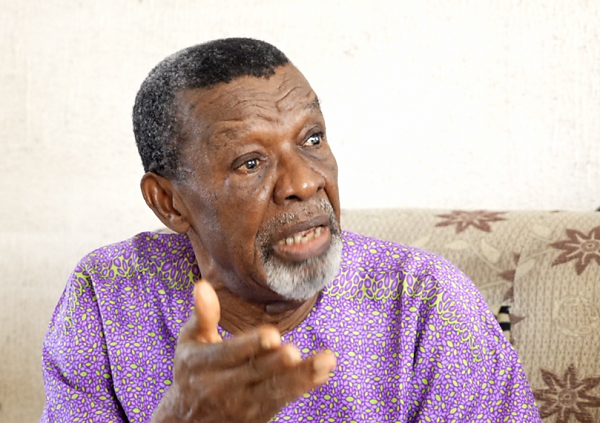Fabian Adibe says he was jailed for 30 months after joining Biafra forces in the Nigerian civil war.
The actor spoke to BBC Igbo about how the pogrom of 1966 made him join the Ojukwu Special Task Force.
Adibe said he was already acting but opted to join the army after a pregnant woman was murdered in the open.
He said he underwent grueling training before his team was deployed to Ibadan for an operation with explosives.
The actor said they were all arrested and imprisoned in Lagos for 30 months until the civil war ended in 1970.
“1966 coup happened. The north felt that the coup plotters had them in mind, hence, they started killing Igbos in vengeance, leading to an exodus from the north back to the east, and the three-year war that followed,” he said.
“I went to war with [Odumegwu] Ojukwu’s task force. We were caught in Ibadan and put in the maximum security prison in Lagos. I was there for 30 months. It started when a pregnant woman was killed and her baby ripped out.
“She was put on the train and we went there to see for yourselves. It hurt the Igbo. If someone offended you and you killed both their parents and their kid for it, you shouldn’t extend hostility to the entire people of their tribe.
“I entered my name to join the army because the agric minister made it open. We were taken to join the Ojukwu Special Task Force and trained, climbing mountains, getting immersed in water, and flying on an aircraft.
“We were given explosives to cut off the route of the federal soldiers, including rails and bridges. On getting to Ibadan, we didn’t know how the police and army learned of our plans. We were arrested and photographed.
“No one asked what our mission was. We were imprisoned all through the war. 1970 was when we were released.”
Assessing the evolution of Nollywood since then, Adibe said nepotism and tribalism marred the casting process.
“Acting in the Nollywood of old is much easier than what we have today. Then, we acted together irrespective of our state of origin or tribe. We all met in Enugu and easily got acting jobs. It’s not like that today,” the actor added.
“My wife was sacked in 1997 because she was a non-indigen in Enugu, despite being an Igbo woman from Abia state, married to an Imo state-born man. Back in our days, this wouldn’t have happened. Nigeria was one then.”
Copyright 2025 TheCable. All rights reserved. This material, and other digital content on this website, may not be reproduced, published, broadcast, rewritten or redistributed in whole or in part without prior express written permission from TheCable.
Follow us on twitter @Thecablestyle

